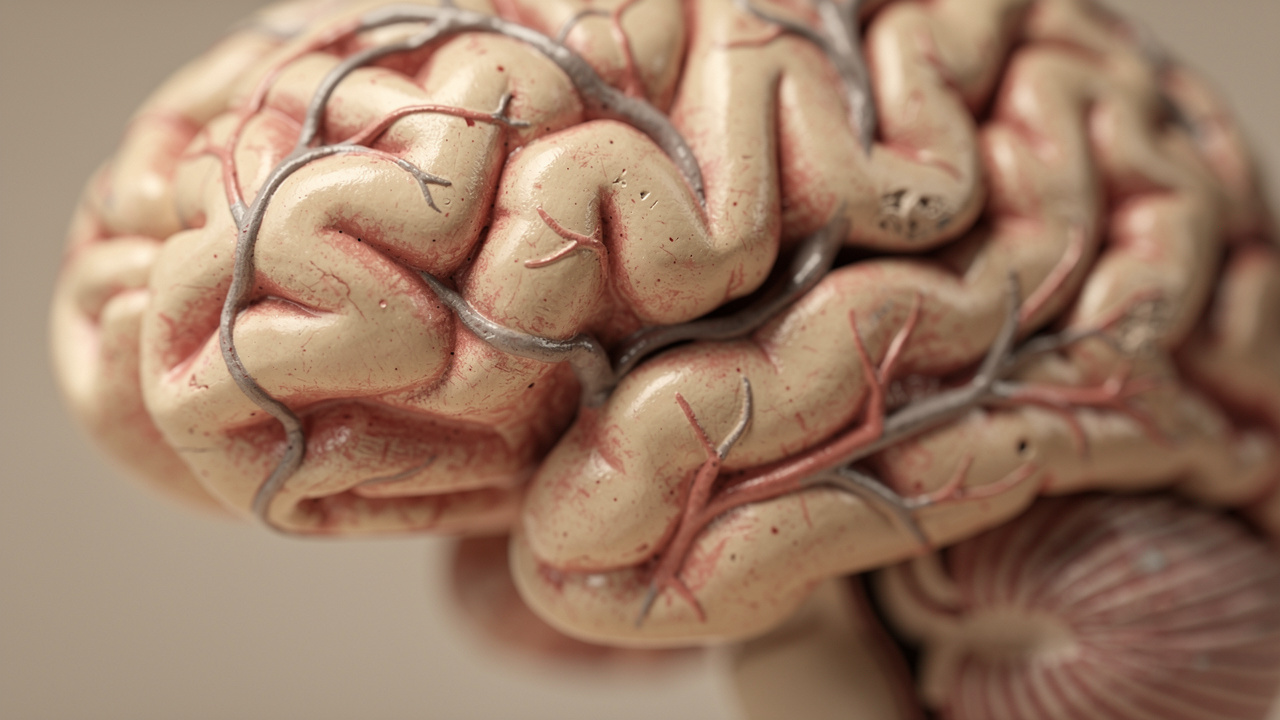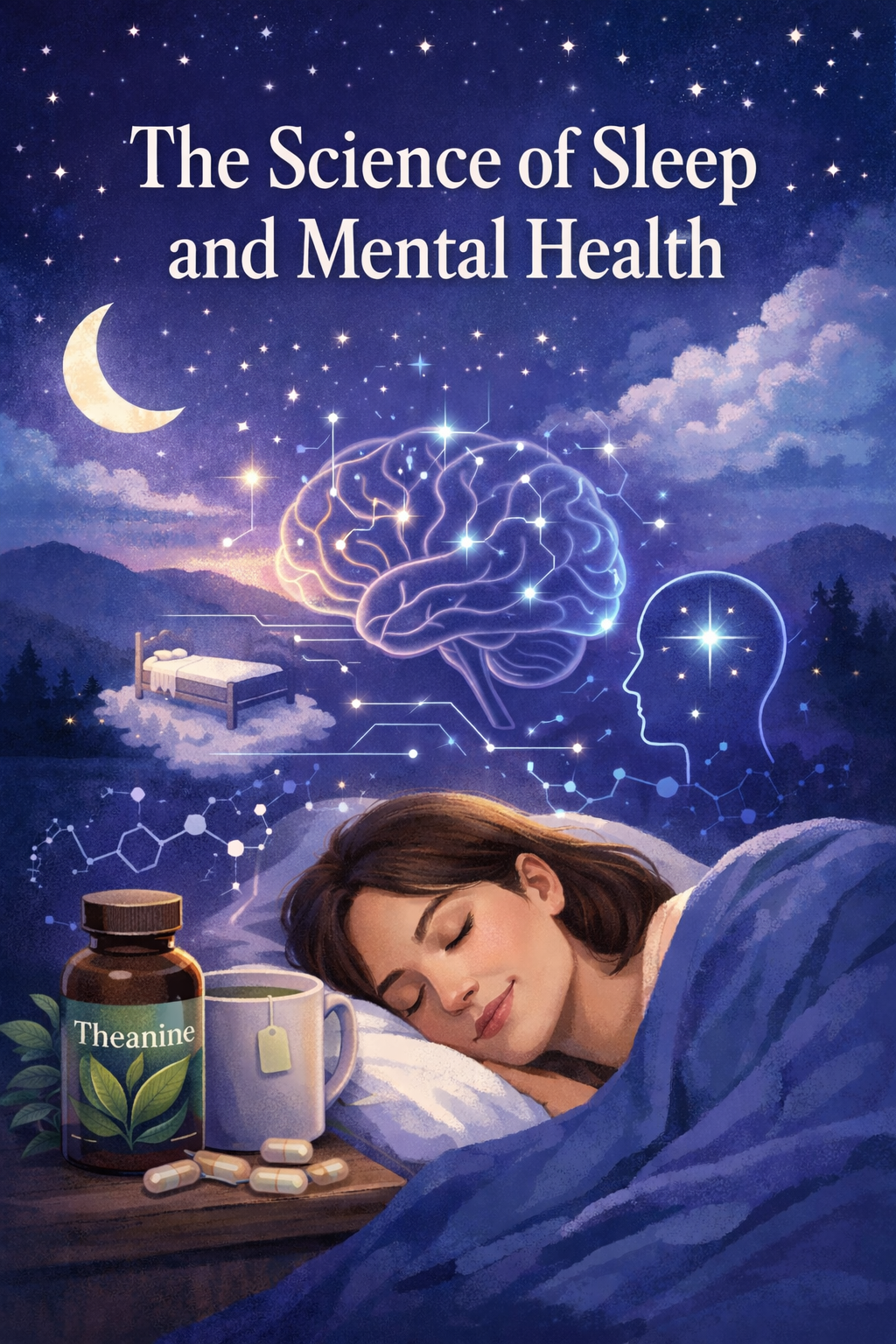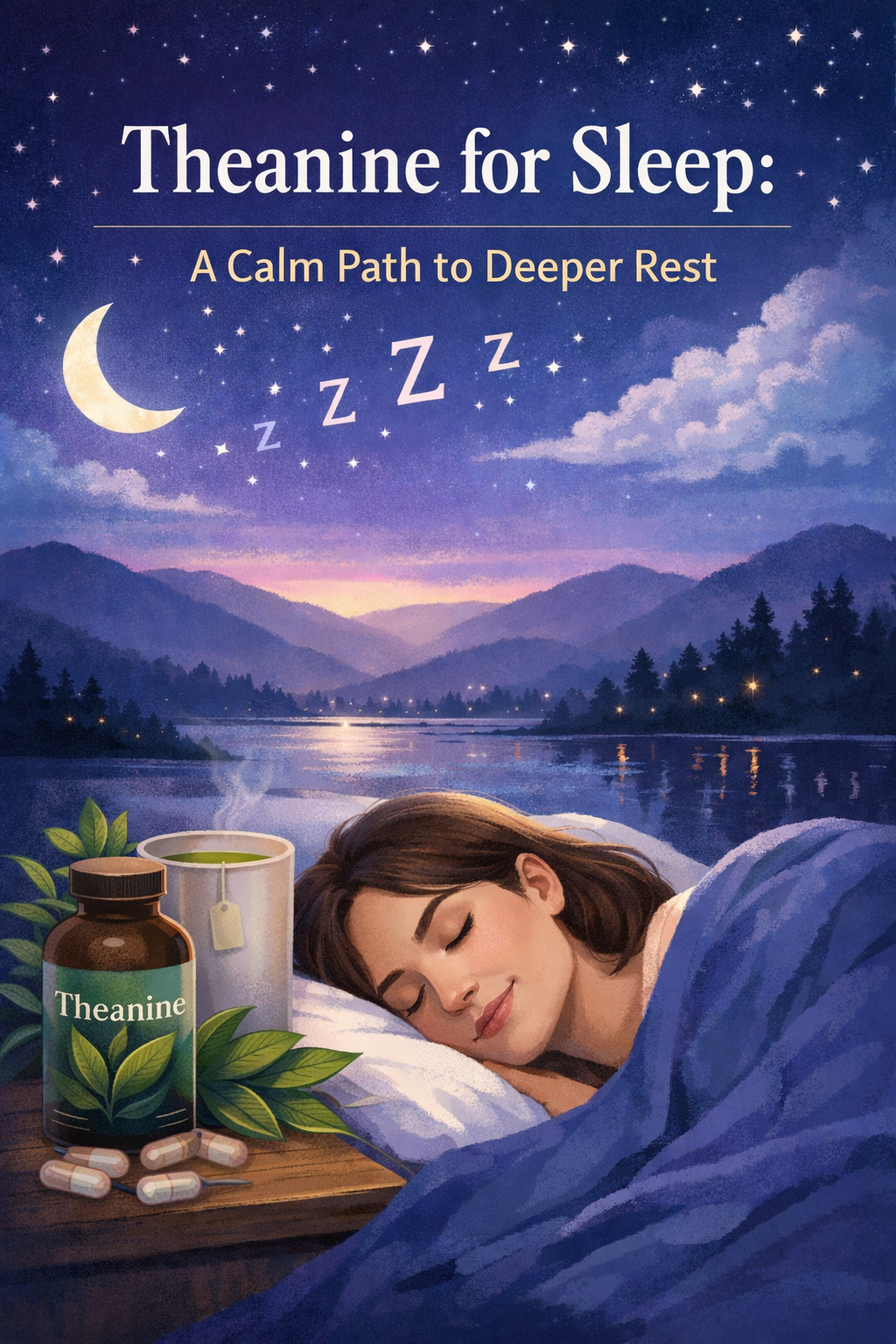The Science Behind Sleep And Mental Health: What You Need To Know
Sleep and mental health are inseparable. When sleep falters, mood, focus, resilience, and even your sense of self begin to shift. When mental health is strained, sleep rarely remains untouched. Modern research makes it clear: the relationship between sleep and mental health is bidirectional, creating either a reinforcing spiral of restoration or a draining loop of exhaustion.
For health‑conscious professionals, wellness enthusiasts, and anyone living with ongoing sleep issues, understanding this science matters. It explains why a few nights of poor rest can feel so destabilizing—and why working with your biology, rather than against it, is one of the most effective ways to restore balance.
“Sleep is the single most effective thing we can do to reset our brain and body health each day.”
— Dr. Matthew Walker, neuroscientist and sleep researcher
Throughout this guide, you’ll see how the science of sleep helps explain your thoughts, emotions, and behavior, and how targeted habits, therapies, and gentle aids such as glycine, reishi, and melatonin nasal spray may support both sleep and mental health.
Why Sleep And Mental Health Influence Each Other
For years, sleep problems were seen mostly as symptoms of mental illness. We now know the connection runs both ways. Poor sleep can contribute to anxiety, depression, and other conditions, while those very conditions can disrupt sleep.
Researchers describe this as a vicious cycle:
-
Insufficient or poor‑quality sleep increases emotional reactivity, worry, and negative thinking.
-
Heightened stress, anxiety, or low mood then make it harder to fall asleep, reach deeper sleep, or stay asleep through the night.
-
Over time, this cycle can solidify into chronic insomnia and entrenched mental health symptoms.
Large studies show that people with chronic insomnia are around 10 times more likely to develop depression and 17 times more likely to experience anxiety than good sleepers, with research demonstrating the link between improvement in sleep quality and reduced depressive symptoms. The takeaway: supporting sleep is not a luxury—it is a central part of caring for your mind.
“Sufficient sleep is not a luxury — it is a necessity for good health.”
— Centers for Disease Control and Prevention (CDC)
Inside The Sleeping Brain: How Rest Shapes Thoughts And Emotions

Behind every night of rest is a complex interplay of biology:
-
Circadian rhythm acts as your internal clock, aligning sleep with light and darkness.
-
Sleep homeostasis tracks how long you’ve been awake and builds “sleep pressure” across the day.
-
Hormones such as melatonin rise in the evening, signaling that it is time to wind down.
When this system works well, your brain moves smoothly through light sleep, deeper sleep, and REM (dream) sleep, with emerging science revealing how sleep affects mental well-being through these distinct sleep stages. Each phase supports mental health in a different way:
-
Slow‑wave (deep) sleep supports physical recovery, immune function, and clears metabolic waste from the brain through the glymphatic system.
-
REM sleep is heavily involved in processing emotions, integrating memories, and softening the emotional “charge” of difficult experiences.
The amino acid glycine, explored in the Glycine For Sleep Guide, appears to support this process by lowering core body temperature and promoting a sense of calm. Melatonin, described in the Melatonin Nasal Spray Guide, helps align circadian signals so that sleep onset feels more natural and timely.
When these systems are disrupted—by stress, late‑night light exposure, irregular schedules, or certain medical conditions—both sleep and mental health begin to fray.
How Sleep Loss Changes Mood, Thinking, And Behavior

Even a single night of poor sleep changes how the brain processes the world. After short or fragmented sleep:
-
The prefrontal cortex, responsible for planning, judgment, and emotional control, becomes less effective.
-
The amygdala, the brain’s alarm center, becomes more reactive.
This imbalance makes everything feel more intense: minor inconveniences trigger bigger reactions, worries feel heavier, and concentration slips. Over days and weeks, chronic sleep loss raises baseline stress and erodes emotional resilience.
To summarize how two key brain areas respond to sleep loss:
|
Brain Region |
Effect Of Poor Sleep On Mental Health |
|---|---|
|
Prefrontal cortex |
Weaker impulse control, less flexible thinking, more rigid pessimism |
|
Amygdala |
Heightened threat detection, stronger fear responses, emotional swings |
Researchers have described a “mind after midnight” effect: after long periods of wakefulness, especially late at night, the tired brain tends to make poorer decisions, ruminate more, and interpret situations more negatively. With fewer social and environmental “guardrails” in the late hours, this can feed risk‑taking, impulsivity, and dark or pessimistic thoughts.
From the perspective of the science, this helps explain why sleepless nights are linked not just to low mood and irritability, but also to higher risk for depression, anxiety, and even suicidal thinking.
Sleep And Specific Mental Health Conditions
The connection between sleep and mental health shows up across many diagnoses. A few key patterns:
Depression And Insomnia
Most people with depression experience some form of sleep disturbance:
-
Trouble falling asleep
-
Waking up often and struggling to stay asleep
-
Waking too early and being unable to return to rest
-
Less commonly, sleeping far more than usual but still feeling unrefreshed
Fragmented sleep intensifies fatigue, concentration problems, and emotional numbness or despair. At the same time, untreated insomnia makes future depressive episodes more likely.
Approaches like “Reclaim Your Sleep: The SLP1 Protocol for Moms to Win Their Sleep Back” emphasize:
-
Structured routines
-
Predictable wind‑down rituals
-
Gentle, repeatable steps that support both mood and rest
Anxiety, Hyperarousal, And Nighttime Worry
Anxiety keeps the body and mind on high alert—exactly the opposite state required for sleep. Common experiences include:
-
Racing thoughts when the lights go out
-
Physical tension and a “wired but tired” feeling
-
Waking abruptly in the night and immediately checking for threats, tasks, or messages
Chronic insomnia, in turn, magnifies anxiety. Studies show that people who routinely struggle to sleep are far more likely to develop anxiety disorders. Restoring deeper sleep helps calm the nervous system and gives the brain a nightly chance to reset.
PTSD, Bipolar Disorder, ADHD, And Psychosis
Other conditions also intertwine closely with sleep:
-
PTSD often brings nightmares and insomnia, leading to fear of sleep itself.
-
Bipolar disorder is marked by distinct changes in sleep: minimal need for sleep in mania and hypersomnia or insomnia in depression.
-
ADHD frequently coexists with delayed sleep timing, restless nights, and difficulty waking.
-
Psychotic disorders often include severe circadian disruption; stabilizing sleep can reduce symptom severity.
In each case, working on both sleep and mental health in parallel tends to produce better outcomes than focusing on either one alone.
Who Is Most At Risk? Teens, Shift Workers, And Caregivers
Some groups live in near‑constant tension with their body clocks, placing them at higher risk for both sleep and mental health challenges.
Teenagers

During adolescence, natural melatonin release shifts later by about two hours. Teens are biologically inclined to fall asleep later, yet early school start times chop off the morning hours they still need for recovery.
Many teens live with chronic sleep debt, which is strongly tied to rising rates of anxiety, irritability, depression, and academic struggles. Later bed and wake times that still allow sufficient sleep are better aligned with their biology and support more stable mood.
Shift Workers And Night Owls
Around one in six workers in the U.S. has a schedule outside the typical 9–5. Night shifts and rotating schedules:
-
Disrupt circadian rhythm
-
Make it harder to achieve deeper sleep
-
Increase risk of depression, anxiety, and burnout
Even for natural “night owls,” studies suggest that very late bedtimes are linked with higher rates of depression and anxiety, regardless of chronotype. Regular exposure to morning light, careful timing of naps, and consistent routines on days off can soften some of these effects.
Parents And Caregivers
New parents, especially mothers, experience some of the most fragmented sleep of any group. Waking frequently to feed, soothe, or monitor a child can keep the nervous system in a state of constant alert, eroding mood and cognitive clarity over months or years.
Programs such as Reclaim Your Sleep: The SLP1 Protocol for Moms to Win Their Sleep Back are designed for this reality. They focus on small, realistic shifts in habits, environment, and mindset that support mental health even when nights are imperfect.
The Pandemic And “Coronasomnia”
During the COVID‑19 pandemic, many adults reported new or worsening insomnia—sometimes called “Coronasomnia.” Stress, disrupted routines, reduced daylight exposure, and heavier screen use all converged. Not surprisingly, symptoms of anxiety and depression rose alongside.
This period highlighted just how sensitive sleep and mental health are to context—and how quickly they can change when daily patterns are altered.
The Role Of Technology And Modern Lifestyles
Modern life places constant demands on attention. Phones glow late into the night, work email spills into evenings, and social feeds never end. All of this shapes sleep and mental health in subtle but powerful ways.
Key influences include:
-
Blue light from screens suppresses natural melatonin, delaying sleep onset.
-
Engaging, emotionally charged content (news, messages, social media) keeps the brain in a state of alertness.
-
Late‑night work or rumination pushes bedtime later, shrinking the window for deeper sleep.
Some people explore melatonin, including approaches outlined in the Melatonin Nasal Spray Guide, to help realign their sleep‑wake cycle when evening light and device use are hard to avoid. Others set digital curfews, dim lighting after sunset, and keep screens out of the bedroom to protect both rest and mental balance.
Evidence‑Based Therapies For Sleep And Mental Health
Improving sleep hygiene is helpful, but when problems become chronic, professional treatment often makes the greatest difference—for both sleep and mental health.
Cognitive Behavioral Therapy (CBT)
Traditional CBT helps people recognize and shift unhelpful thought patterns that fuel anxiety, depression, and stress. As mood improves, sleep often begins to follow.
Cognitive Behavioral Therapy For Insomnia (CBT‑I)
CBT‑I is a specialized, research‑tested form of CBT that targets insomnia directly. It is considered the gold‑standard first‑line treatment for chronic insomnia and has been shown to reduce depression, anxiety, and even psychotic symptoms in some individuals.
Core elements include:
-
Stimulus control
Rebuilding the association between bed and sleep by:-
Using the bed only for sleep and intimacy
-
Going to bed only when genuinely sleepy
-
Getting out of bed if you cannot fall asleep within about 20 minutes and returning only when drowsy
-
-
Sleep restriction (or compression)
Temporarily limiting time in bed to more closely match how long you actually sleep. This strengthens natural sleep drive and gradually consolidates sleep into deeper, more continuous blocks. -
Cognitive techniques
Working with beliefs like “If I don’t get eight hours, tomorrow will be ruined,” and replacing them with more balanced, realistic thoughts that reduce performance anxiety around sleep. -
Relaxation skills
Practicing breathing exercises, progressive muscle relaxation, or mindfulness to calm the nervous system before bed.
Many people find that addressing insomnia this way improves both nightly rest and daytime mood far more than sedative medications alone.
Everyday Habits And Natural Supports For Better Sleep And Mental Health
While therapy addresses patterns of thought and behavior, daily choices set the stage on which sleep and mental health unfold.
Build A Steady Rhythm
A consistent schedule helps regulate your internal clock, with research on the impact of sleep hygiene practices showing measurable improvements in both sleep quality and mental health outcomes:
-
Wake up at roughly the same time every day, including weekends.
-
Aim for a regular bedtime that allows enough time for deeper sleep and REM cycles.
-
Get morning daylight exposure to reinforce circadian signals.
The SLP1 Protocol for Moms draws heavily on this principle, offering rhythm and routine even in seasons of disrupted nights.
Shape A Restful Sleep Environment
Your bedroom should gently nudge your mind toward rest:
-
Keep it cool, dark, and quiet.
-
Reserve the bed for sleep and intimacy rather than work or scrolling.
-
Reduce clutter and visual reminders of unfinished tasks.
Limiting screen time for at least an hour before bed, or using warm, dim lighting, allows melatonin to rise naturally and supports your ability to stay asleep once you drift off.
Practice Wind‑Down Rituals

Simple, repeatable rituals tell the nervous system that the day is closing:
-
Gentle stretching, breathing practices, or brief meditation
-
Reading something calming (on paper or a dim e‑reader)
-
Warm showers or baths to encourage a slight drop in body temperature afterward
Glycine, discussed in the Glycine For Sleep Guide, can be part of an evening ritual for some people, as research suggests it supports relaxation and smoother transitions into sleep.
Consider Targeted Natural Aids
For those who prefer non‑pharmaceutical approaches, several natural supports have attracted interest:
-
Glycine may improve sleep onset and perceived sleep quality by promoting a calm, cool internal environment.
-
Reishi mushroom, explored in Reishi Mushroom And Sleep, is an adaptogen traditionally used to support stress resilience and calm the nervous system.
-
Melatonin nasal spray, outlined in the Melatonin Nasal Spray Guide, offers a rapid delivery method that some find helpful when working to reset timing of sleep.
These options are best viewed as natural supports rather than stand‑alone cures. They tend to work most effectively when integrated into a broader plan that includes consistent routines, cognitive strategies, and guidance such as Reclaim Your Sleep: The SLP1 Protocol for Moms to Win Their Sleep Back.
Nourish Sleep Through Food And Movement
Diet and activity also play noticeable roles in sleep and mental health:
-
Diets high in fiber and lower in added sugars and saturated fats are linked with better sleep quality and more stable mood.
-
Large, heavy meals and caffeine late in the day can fragment deeper sleep.
-
Regular physical activity—especially earlier in the day—helps build healthy sleep pressure and eases anxiety.
Balancing these factors supports both night‑time rest and day‑time clarity.
When To Seek Professional Help
Self‑care strategies go a long way, but some signs call for a deeper look:
-
Difficulty falling or staying asleep at least three nights a week for more than a month
-
Loud snoring, gasping, or pauses in breathing that may suggest sleep apnea
-
Persistent nightmares or trauma‑linked sleep disturbances
-
Daytime sleepiness that affects work, driving, or relationships
-
Worsening depression, anxiety, or suicidal thoughts
A medical or sleep specialist can assess for conditions like chronic insomnia, obstructive sleep apnea, circadian rhythm disorders, or narcolepsy, and recommend targeted treatments such as CBT‑I, medical devices, medication, or a combination.
Working with both sleep and mental health in an integrated way is often more effective than paying attention to only one.
Bringing Sleep And Mental Health Back Into Balance
The emerging picture from the science is clear: sleep is not a passive state but an active, renewing process that shapes how you think, feel, and relate to the world. When sleep is protected, the brain prunes and repairs, emotions settle, and resilience grows. When it breaks down, even the strongest mind begins to fray.
The path back rarely requires perfection. It usually begins with a few steady commitments:
-
Respecting your natural rhythms
-
Creating a calmer, darker, quieter space for rest
-
Using therapies like CBT‑I when insomnia takes hold
-
Drawing on gentle supports like glycine, reishi, or melatonin where appropriate
-
Following structured guidance such as the SLP1 Protocol or Reclaim Your Sleep: The SLP1 Protocol for Moms to Win Their Sleep Back
By tending carefully to both sleep and mental health, you give your brain and body the conditions they need to restore themselves—night after night, thought after thought.



Leave a comment
This site is protected by hCaptcha and the hCaptcha Privacy Policy and Terms of Service apply.